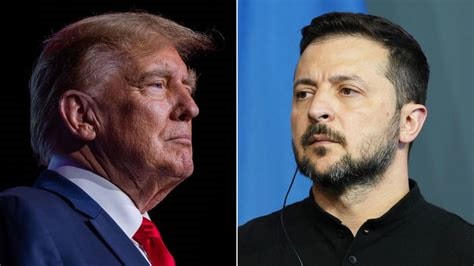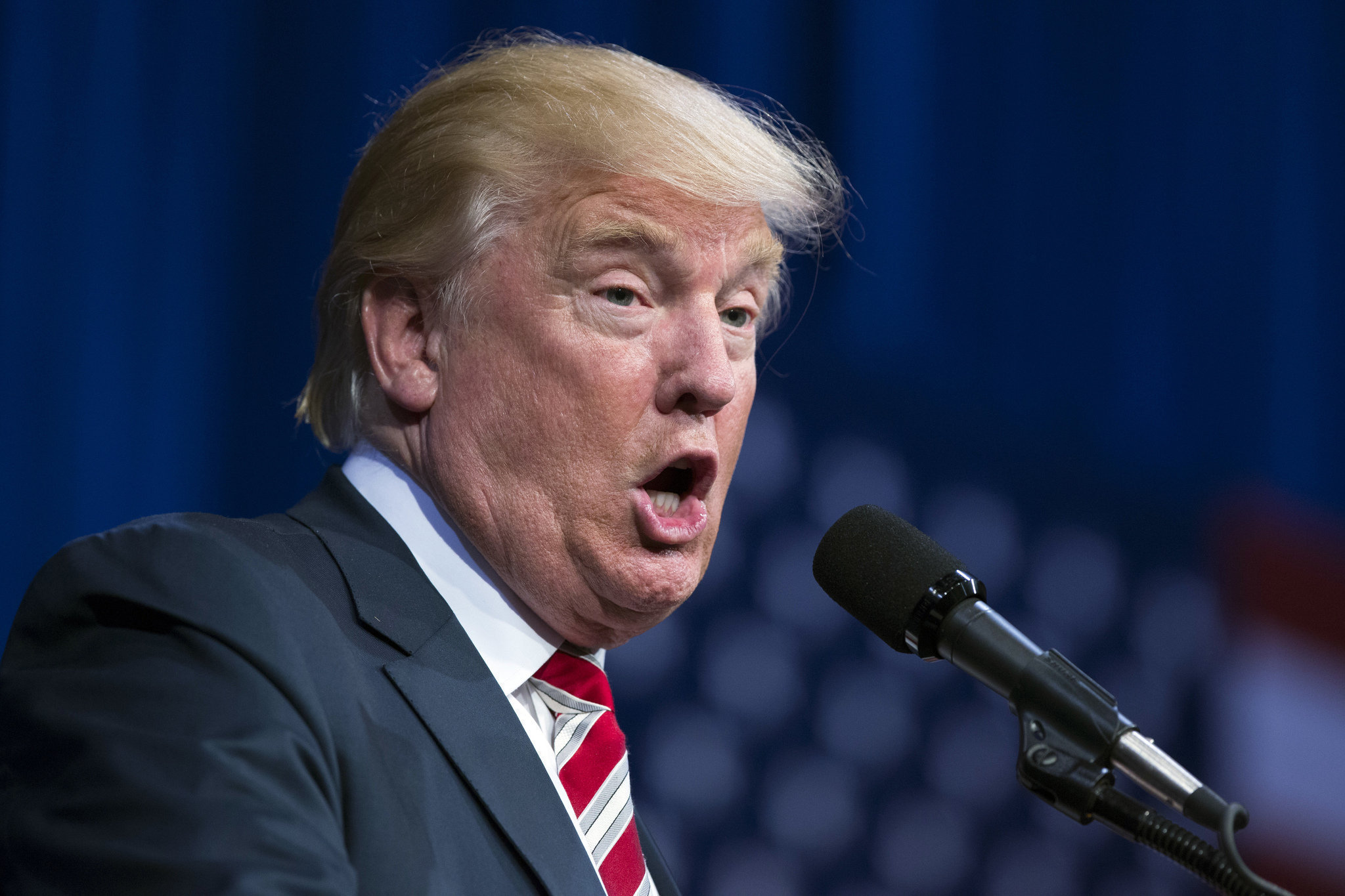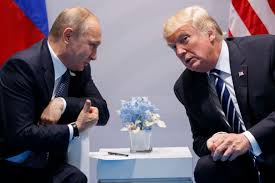Global News
Putin Rejects U.S. Peace Proposal, Issues New Demands Amid Stalled Ukraine Talks
5th April, 2025 at 19:37
By Our Reporter
 Moscow, Russia – April 5, 2025 – Russian President Vladimir Putin has once again escalated tensions in the ongoing Ukraine conflict by rejecting a recent U.S.-brokered peace proposal, insisting that
Moscow, Russia – April 5, 2025 – Russian President Vladimir Putin has once again escalated tensions in the ongoing Ukraine conflict by rejecting a recent U.S.-brokered peace proposal, insisting that
 Moscow, Russia – April 5, 2025 – Russian President Vladimir Putin has once again escalated tensions in the ongoing Ukraine conflict by rejecting a recent U.S.-brokered peace proposal, insisting that it fails to address what he calls the "root causes" of the war. The announcement, made during a press conference in the Kremlin on Friday, comes as negotiations between Russia, the United States, and Ukraine appear to have reached an impasse.
Moscow, Russia – April 5, 2025 – Russian President Vladimir Putin has once again escalated tensions in the ongoing Ukraine conflict by rejecting a recent U.S.-brokered peace proposal, insisting that it fails to address what he calls the "root causes" of the war. The announcement, made during a press conference in the Kremlin on Friday, comes as negotiations between Russia, the United States, and Ukraine appear to have reached an impasse.According to a high-ranking Russian official cited by Reuters, Putin reiterated long-standing demands, including Ukraine’s permanent exclusion from NATO, significant reductions in its military capabilities, and international recognition of Russia’s annexation of Crimea and four eastern Ukrainian regions—Donetsk, Luhansk, Zaporizhzhia, and Kherson. These territories, which Putin claims as part of Russia under its constitution, remain a major sticking point in talks.
The U.S. proposal, reportedly discussed in recent weeks with Trump administration envoy Steve Witkoff, included a 30-day ceasefire to pave the way for broader peace negotiations. However, Putin dismissed the plan, questioning its practicality and suggesting that Ukraine could use the pause to rearm. “The idea itself is correct, but what happens next?” Putin asked rhetorically during the press conference. “Who will ensure compliance? Will Western aid stop? These are questions that need answers.”
In a surprising twist, Putin also raised doubts about the legitimacy of Ukraine’s current government, echoing earlier statements where he labeled Ukrainian authorities as “illegitimate” and influenced by “Nazis.” Some posts on X have suggested that Putin is pushing for a UN-controlled administration to oversee Ukraine, followed by new elections, before any peace deal can be finalized. However, the Kremlin has not officially confirmed this as a formal demand.
Ukrainian President Volodymyr Zelenskyy swiftly condemned Putin’s response as “manipulative,” accusing him of deliberately stalling negotiations. “He frames every proposal with conditions that ensure nothing moves forward,” Zelenskyy said in his nightly address on Friday. “This is not a man seeking peace—it’s a man seeking to prolong war.”
The Trump administration, which has positioned itself as a mediator in the conflict, expressed cautious optimism earlier this week, with President Donald Trump describing a recent call with Putin as “productive.” Yet, Putin’s latest remarks—and his omission from the White House readout of a demand to end U.S. military and intelligence support to Ukraine—have cast doubt on the feasibility of a near-term resolution.
Analysts suggest Putin’s strategy may be to exploit perceived divisions between the U.S. and its European allies while maintaining pressure on the battlefield. Russian forces have recently intensified operations in Ukraine’s Kursk region, aiming to reclaim territory seized by Ukrainian troops last summer. A victory there could strengthen Moscow’s negotiating position.
European leaders, including France’s Emmanuel Macron and Germany’s Olaf Scholz, reaffirmed their support for Ukraine during a joint press conference on Thursday, vowing to continue military aid. “Putin’s demands are incompatible with a stable Europe,” said Matthew Savill, an analyst at the Royal United Services Institute.
As talks falter, the war—now in its third year—shows no immediate signs of abating. With Russia controlling roughly one-fifth of Ukraine and both sides digging in, the prospect of a lasting ceasefire remains elusive, leaving the international community bracing for what comes next.
Leak of Sensitive U.S. Security Information Sparks Alarm in Washington
25th March, 2025 at 21:33
By Our Reporter
 Washington, D.C. – March 25, 2025 – A significant breach of American national security came to light today as reports surfaced of a leak involving highly sensitive military and intelligence informat
Washington, D.C. – March 25, 2025 – A significant breach of American national security came to light today as reports surfaced of a leak involving highly sensitive military and intelligence informat
 Washington, D.C. – March 25, 2025 – A significant breach of American national security came to light today as reports surfaced of a leak involving highly sensitive military and intelligence information. The White House confirmed that top Trump administration officials inadvertently disclosed war plans in a messaging group that included a journalist from The Atlantic, just hours before a U.S. military strike on Yemen’s Iran-aligned Houthis. This incident, described as a "massive breach of military intelligence," has raised urgent concerns about the safeguarding of classified materials and prompted immediate action from U.S. officials.
Washington, D.C. – March 25, 2025 – A significant breach of American national security came to light today as reports surfaced of a leak involving highly sensitive military and intelligence information. The White House confirmed that top Trump administration officials inadvertently disclosed war plans in a messaging group that included a journalist from The Atlantic, just hours before a U.S. military strike on Yemen’s Iran-aligned Houthis. This incident, described as a "massive breach of military intelligence," has raised urgent concerns about the safeguarding of classified materials and prompted immediate action from U.S. officials.The leaked information reportedly included detailed operational plans for the attack, which took place earlier today. According to White House statements, the disclosure occurred within a Signal chat group—a platform typically used for secure communications—when senior officials mistakenly shared the sensitive data with an unintended recipient. The breach was first reported by Reuters, which noted that intelligence chiefs were scheduled to testify before the Senate this afternoon to address the fallout and assess the damage to national security.
Pentagon and Justice Department officials have launched a joint investigation to determine the full scope of the leak and identify how such a critical error occurred. A Pentagon spokesperson emphasized the gravity of the situation, stating, “This incident represents a serious lapse in protocol that could compromise ongoing operations and endanger lives.” The White House has not yet released specifics about the exact nature of the leaked documents but acknowledged that the information was shared shortly before the military action, potentially giving adversaries a window into U.S. strategy.
The timing of the leak has intensified its impact, coming amid heightened tensions in the Middle East following the U.S. strike on Houthi targets, which was aimed at curbing Iran-backed aggression in Yemen. Analysts suggest that the exposure of war plans could undermine U.S. credibility with allies and provide adversaries with actionable intelligence. “Even an inadvertent leak of this magnitude can have ripple effects across our strategic operations,” said a former intelligence official who spoke on condition of anonymity.
This incident marks the latest in a series of high-profile security breaches in recent years, reigniting debates over the handling of classified information within the U.S. government. In response, the Pentagon has announced plans to review its communication protocols and security clearance processes. Defense Department personnel may face polygraph tests as part of the inquiry, a measure last widely employed following leaks in 2023, according to a memo from Defense Secretary Pete Hegseth’s office issued late Friday.
Public reaction, as reflected in different social media posts , ranges from outrage over perceived incompetence to calls for accountability among senior officials. The White House has sought to downplay the scope of the damage, with a spokesperson asserting, “We are taking swift steps to contain this and ensure it does not happen again.” However, the inclusion of a journalist in the chat group has raised additional questions about the vetting of communication channels used by top brass.
As the investigation unfolds, intelligence leaders are under pressure to reassure Congress and the public that measures are in place to prevent further breaches. Today’s Senate testimony, which began at approximately 3:00 PM WAT, is expected to shed light on the immediate steps being taken and the potential long-term implications for U.S. security policy. For now, the leak stands as a stark reminder of the vulnerabilities inherent in managing sensitive information in an era of instant communication.
Hamas Reports Head of Gaza Government, Essam al-Dalis, Killed in Israeli Strikes
18th March, 2025 at 18:17
By Our Reporter
Gaza City, March 18, 2025 – Hamas announced on Tuesday that Essam al-Dalis, the head of its government in the Gaza Strip, was among several officials killed in a series of Israeli airstrikes that ro
...
Gaza City, March 18, 2025 – Hamas announced on Tuesday that Essam al-Dalis, the head of its government in the Gaza Strip, was among several officials killed in a series of Israeli airstrikes that rocked the Palestinian enclave. The strikes, which resumed after a two-month ceasefire, have claimed over 400 lives, according to the Hamas-run Health Ministry, marking a dramatic escalation in the ongoing conflict between Israel and the militant group.
Hamas identified al-Dalis, a prominent figure in its political bureau and the de facto leader of its Gaza administration since June 2021, as a casualty of the latest wave of attacks. Alongside him, the group reported the deaths of other senior officials, including Mahmoud Abu Watfa, undersecretary of the Ministry of Interior, Ahmed al-Hetta, deputy justice minister, and Bahjat Abu Sultan, director general of the internal security service. The losses represent a significant blow to Hamas’s governance structure in the territory.
The Israeli military confirmed it launched extensive strikes across Gaza, targeting what it described as “terror targets” linked to Hamas and Palestinian Islamic Jihad. Israeli Prime Minister Benjamin Netanyahu and Defense Minister Israel Katz ordered the operations, citing Hamas’s refusal to extend the ceasefire and release additional hostages as the trigger. “From this point forward, Israel will act against Hamas with increasing military intensity,” a statement from Netanyahu’s office declared, echoing sentiments from Foreign Ministry spokesman Oren Marmorstein.
The ceasefire, brokered by the United States, Qatar, and Egypt, had brought relative calm to Gaza since January 19, following over a year of devastating war sparked by Hamas’s October 7, 2023, attack on Israel. That assault killed approximately 1,200 people and saw 251 taken hostage, prompting Israel’s relentless military campaign, which has left much of Gaza in ruins and killed over 48,000 Palestinians, per local health authorities. The truce facilitated the release of 33 Israeli hostages and five Thais in exchange for around 2,000 Palestinian prisoners, but negotiations to sustain the peace faltered earlier this month.
Hamas accused Israel of unilaterally shattering the ceasefire, calling the strikes a “blatant violation of humanitarian conventions” and urging mediators and the United Nations to intervene. The group has not yet signaled a resumption of hostilities but warned that the attacks jeopardize the fate of the 59 hostages it still holds, of whom Israel believes only 24 remain alive.
Eyewitnesses described scenes of chaos as airstrikes hit residential areas, with one resident, Essam Abu Odeh, telling BBC Arabic, “Everyone was filled with fear, unsure of where to go.” The bombardment, which began in the early hours of Tuesday, has overwhelmed Gaza’s already crippled healthcare system, with hospitals struggling to cope with the influx of casualties.
International reactions have been swift. Turkey condemned the strikes as a “new phase in Gaza genocide policy,” while the White House confirmed it was consulted by Israel prior to the operation, though it offered no further comment. Negotiators in Doha, where talks had been underway to bridge gaps between the two sides, expressed dismay at the collapse of diplomatic efforts.
As the dust settles over Gaza, the renewed violence raises questions about the future of ceasefire talks and the prospects for peace in a region scarred by decades of conflict. For now, the people of Gaza brace for what Israeli officials have warned will be an intensified military campaign against Hamas.
Putin Expresses Gratitude to Trump for Focus on Ukraine Conflict Resolution
15th March, 2025 at 17:46
By Our Reporter
 Russian President Vladimir Putin publicly thanked U.S. President Donald Trump on Friday for his dedicated attention to resolving the ongoing war between Russia and Ukraine, signaling a potential thaw
Russian President Vladimir Putin publicly thanked U.S. President Donald Trump on Friday for his dedicated attention to resolving the ongoing war between Russia and Ukraine, signaling a potential thaw
 Russian President Vladimir Putin publicly thanked U.S. President Donald Trump on Friday for his dedicated attention to resolving the ongoing war between Russia and Ukraine, signaling a potential thaw in tensions as diplomatic efforts intensify. The remarks, made during a press conference in Moscow, come amid heightened U.S.-led initiatives to broker a ceasefire and bring an end to the conflict, which has persisted since Russia’s full-scale invasion of Ukraine in February 2022.
Russian President Vladimir Putin publicly thanked U.S. President Donald Trump on Friday for his dedicated attention to resolving the ongoing war between Russia and Ukraine, signaling a potential thaw in tensions as diplomatic efforts intensify. The remarks, made during a press conference in Moscow, come amid heightened U.S.-led initiatives to broker a ceasefire and bring an end to the conflict, which has persisted since Russia’s full-scale invasion of Ukraine in February 2022.
“I thank Mr. Trump for paying so much attention to the settlement in Ukraine,” Putin said, according to Russian news outlet Kommersant. He emphasized that Trump’s focus on ending hostilities and preventing further loss of life aligns with Moscow’s stated openness to negotiations, though he noted that “nuances” remain to be resolved before any agreement can be finalized. Putin’s comments mark a rare acknowledgment of Trump’s diplomatic efforts since the U.S. president took office earlier this year.
The war, now approaching its third year, has claimed countless lives and displaced millions, with Russia currently controlling approximately 20% of Ukrainian territory. Trump, who has repeatedly vowed to end the conflict swiftly, has engaged in direct talks with Putin, including a notable phone call on March 13, 2025, described by Trump as “productive.” In a subsequent Truth Social post, Trump highlighted a “very good chance” of ending the “horrible, bloody war,” underscoring his appeal to Putin to spare Ukrainian troops reportedly under pressure in Russia’s Kursk region.
While Trump’s administration has pushed for a 30-day ceasefire—accepted by Ukraine following negotiations in Jeddah earlier this month—Putin has outlined conditions for Russia’s participation, including a demand that Ukraine refrain from rearming during the truce. These stipulations have drawn criticism from Ukrainian President Volodymyr Zelensky, who accused Putin of manipulating the process to prolong the war. “Putin is lying about how a ceasefire is supposedly too complicated,” Zelensky posted on X, insisting that Russia’s reluctance is the primary obstacle to peace.
Despite the challenges, Putin’s expression of gratitude suggests a willingness to engage with Trump’s approach, potentially influenced by the U.S. president’s threats of escalated sanctions and tariffs if Russia does not cooperate. Trump has oscillated between tough rhetoric—warning of economic penalties—and conciliatory tones, noting on March 7 that Putin’s intensified strikes on Ukraine were “what anybody would do” given the circumstances.
International observers see Putin’s remarks as a strategic nod to Trump’s personal diplomacy, which contrasts sharply with the Biden administration’s policy of isolating Russia. Posts on X reflect a mix of sentiments, with some users noting Putin’s careful avoidance of antagonizing Trump, possibly to preserve goodwill for future talks. Others remain skeptical, viewing the gratitude as a tactic to shift blame for any stalled negotiations.
As military chiefs from the U.K. and other nations prepare to meet this week to discuss a potential peacekeeping force, and with Trump hinting at further discussions with Putin, the coming days could prove pivotal in determining whether this rare public exchange between the two leaders translates into concrete progress toward peace. For now, the world watches as the U.S. and Russia navigate a delicate dance of diplomacy amid the ruins of Europe’s largest conflict since World War II.

